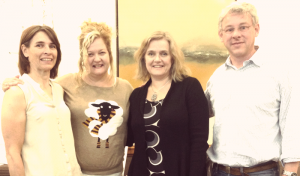Snook are delighted to be able to announce our exciting new project with University of Portsmouth, University of Kent and Affective State is now live and online.
University of Kent’s Centre for Child Protection is leading this consortium of partners developing a project, known as Responsive InTeractive Advocate (RITA), which has won a share of £2.4m in funding from the UK’s innovation agency, the Technology Strategy Board (TSB) as part of their Long Term Care Revolution programme. The University of Portsmouth’s School of Creative Technologies will focus on developing the interactive avatar, while Winchester-based company, Affective State will work on sensing and forecasting emotional well-being, while Snook focus on the user experience and service design aspects.
The RITA project is one of six born of a national TSB initiative aimed at developing new cost-effective ways of helping elderly people to continue to live comfortably and independently in their own homes if they want to.
RITA is focused on exploiting emerging technologies from the entertainment industry to innovate new models of personalised care for the future.
The aim is to develop a new service model which uses artificially intelligent ‘virtual companions’ to help older people stay living comfortably and safely in their own homes for longer. This service could revolutionise the way elderly people are cared for in the future, giving back independence and autonomy to millions and, of course, saving vital public service money.
Individuals will have their own humanised computer avatar capable of intelligent communication, which will monitor their health and well-being and provide a friendly link between the individual and family, friends, professions and services. The avatar will have access to a comprehensive database of personal information about the individual, from health records to personal preferences and even character traits, which will help inform its communication and decisions.
The avatar might appear as a figure on a television screen or a tablet computer or could even be a holographic display. It would link with other existing and emerging technologies to monitor heart rate and blood pressure, remind people to take medication and would know if they had fallen over or were in pain and alert the doctor or the emergency services. It would be able to analyse their speech, movement and facial expression to detect their mood and respond accordingly. The system would not require computer literacy and would be no more challenging to operate than switching on a television.
We at Snook are very excited about how this development could transform how an individual’s personal, social, emotional and intellectual needs are captured, understood and met. We believe this will help create a framework of support around individuals, extending access to supportive social networks, enabling and prolonging their ability to live independently for longer in their own homes.
We are really excited by the global attention this project is receiving too – the project has already been featured in BT, World News Australia, ITV.com, Nursing Times, TalkTalk, Yahoo! UK and Ireland and The Age!
Follow RITA on twitter for project updates.
